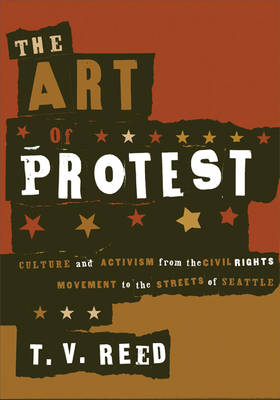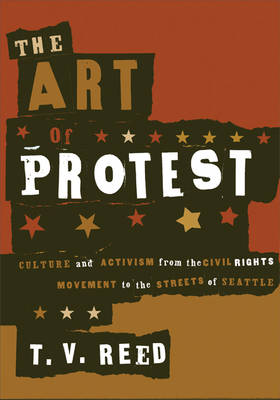
- Retrait gratuit dans votre magasin Club
- 7.000.000 titres dans notre catalogue
- Payer en toute sécurité
- Toujours un magasin près de chez vous
- Retrait gratuit dans votre magasin Club
- 7.000.000 titres dans notre catalogue
- Payer en toute sécurité
- Toujours un magasin près de chez vous
The Art of Protest
Culture and Activism from the Civil Rights Movement to the Streets of Seattle
T V Reed
Livre broché | Anglais
34,45 €
+ 68 points
Format
Description
Imagine the civil rights movement without freedom songs and the politics of women's movements without poetry. Or, more difficult yet, imagine an America unaffected by the cultural expressions and forms of the twentieth-century social movements that have shaped our nation. The first broad overview of social movements and the distinctive cultural forms that express and helped shape them, The Art of Protest shows the vital importance of these movements to American culture. In comparative accounts of movements beginning with the African American civil rights movement of the 1950s and 1960s and running through the Internet-driven movement for global justice ("Will the revolution be cybercast?") of the twenty-first century, T. V. Reed enriches our understanding of protest and its cultural expression. Reed explores the street drama of the Black Panthers, the revolutionary murals of the Chicano movement, the American Indian Movement's use of film and video, rock music and the struggles against famine and apartheid, ACT UP's use of visual art in the campaign against AIDS, and the literature of environmental justice. Throughout, Reed employs the concept of culture in three interrelated ways: by examining social movements as sub- or countercultures; by looking at poetry, painting, music, murals, film, and fiction in and around social movements; and by considering the ways in which the cultural texts generated by resistance movements have reshaped the contours of the wider American culture. The United States is a nation that began with a protest. Through the kaleidoscopic lens of artistic and cultural expression, Reed reveals how activism continues to remake our world.
Spécifications
Parties prenantes
- Auteur(s) :
- Editeur:
Contenu
- Nombre de pages :
- 388
- Langue:
- Anglais
Caractéristiques
- EAN:
- 9780816637713
- Date de parution :
- 01-07-05
- Format:
- Livre broché
- Format numérique:
- Trade paperback (VS)
- Dimensions :
- 149 mm x 229 mm
- Poids :
- 512 g







